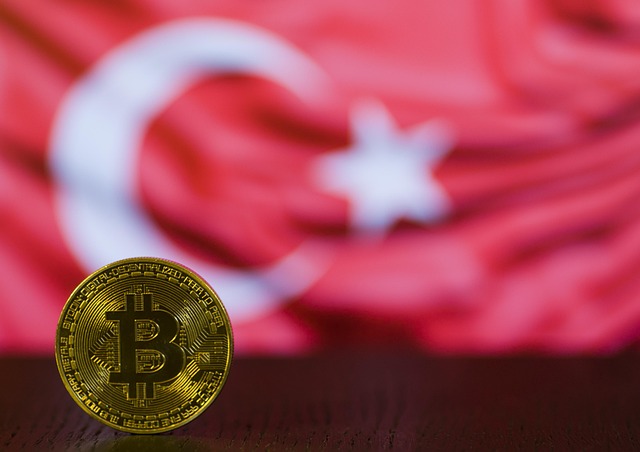Is Bitcoin Trading Halal or Haram in Islam in 2025? An In-Depth Analysis
Author: Jameson Richman Expert
Published On: 2025-08-09
Prepared by Jameson Richman and our team of experts with over a decade of experience in cryptocurrency and digital asset analysis. Learn more about us.
Bitcoin trading has become a highly debated topic within Islamic finance, raising critical questions about its compliance with Shariah law. As the landscape of digital assets and cryptocurrencies rapidly expands worldwide, Muslim traders, scholars, and financial experts are engaged in ongoing discussions to evaluate whether engaging in Bitcoin trading aligns with Islamic ethical and legal principles. This debate is further complicated by the unique mechanics of cryptocurrencies—decentralization, high volatility, and speculative nature—which challenge traditional Islamic financial ethics rooted in justice, certainty, and prohibition of harm. Over recent years, I have conducted extensive research, engaged with reputable Islamic scholars, and analyzed various fatwas and scholarly opinions to provide a comprehensive, nuanced perspective. This article explores the core Islamic principles relevant to cryptocurrency trading, scrutinizes Bitcoin through the lenses of gharar (excessive uncertainty) and maysir (gambling), and offers practical guidelines for responsible engagement with crypto assets in 2025.

Foundational Islamic Principles Relevant to Cryptocurrency Trading
To evaluate whether Bitcoin trading is permissible (halal) or forbidden (haram) in Islam, it is essential to revisit the fundamental principles of Islamic finance. These principles serve as ethical standards that govern all economic transactions, emphasizing justice (adl), transparency, and the prohibition of harm (la darar wa la dirar). The key principles include:
- Gharar (Excessive Uncertainty): Transactions characterized by excessive ambiguity or uncertainty are prohibited because they can lead to unjust gains, disputes, or exploitation. The Prophet Muhammad (peace be upon him) explicitly condemned gharar, emphasizing the importance of clear, well-defined contracts that minimize ambiguity.
- Maysir (Gambling): Activities that resemble gambling—where outcomes depend heavily on chance, luck, or speculation—are strictly forbidden. Excessive speculation, especially involving short-term trading, leverage, or high-risk bets, is frequently equated with maysir, which Islam seeks to prohibit.
- Riba (Interest): Earnings derived from interest or usury are unequivocally haram. While Bitcoin itself does not generate interest inherently, certain trading practices—such as margin trading or lending—may mimic riba, raising concerns about its permissibility.
- Supporting Unlawful Activities: Any transaction facilitating illegal activities—money laundering, terrorism financing, or drug trafficking—is categorically haram and incompatible with Islamic law.
Applying these principles to cryptocurrencies requires a detailed analysis of Bitcoin's characteristics and the methods used in trading. The key questions revolve around whether the activity involves excessive gharar, maysir, or supports unlawful conduct—elements that would render it incompatible with Islamic ethics. The challenge lies in balancing technological innovation with adherence to Islamic legal standards.
Analyzing Cryptocurrency Through the Lens of Gharar and Maysir
Bitcoin’s extreme volatility and rapid price swings underscore the core concern of gharar—excessive uncertainty. The cryptocurrency market’s unpredictable nature, marked by speculative trades, market manipulation, and sudden price fluctuations, closely resembles gambling rather than traditional investment. This environment can expose traders to significant financial risks and disputes, raising questions about whether such activity aligns with Islamic teaching that emphasizes fairness, caution, and justice in economic dealings.
Prominent scholars like Sheikh Yusuf al-Qaradawi have explicitly warned against excessive speculation, equating it with maysir—gambling—particularly when traders seek quick profits based on chance rather than intrinsic value. Engaging in short-term, leveraged, or highly speculative strategies may resemble gambling in a manner that violates Islamic law. To align Bitcoin trading with Islamic principles, traders should consider adopting a long-term perspective, avoiding leverage, and viewing Bitcoin as a store of value or a hedge—rather than a tool for speculative gains. This approach minimizes gharar, encourages responsible participation, and reflects an ethical mindset consistent with Islamic values.
Ethical Dimensions and the Importance of Responsible Trading
Beyond technical and legal considerations, ethical dimensions are central to Islamic finance. Cryptocurrency transactions should be conducted transparently and through reputable platforms that adhere to Islamic ethical standards—platforms that promote security, integrity, and fairness. Leading exchanges such as Binance, Mexc, Bitget, and Bybit often implement robust Know Your Customer (KYC) protocols and anti-fraud measures, helping traders avoid involvement in illicit activities.
Responsible trading involves moderation—avoiding over-leverage, refraining from market manipulation, and trading with honest intent. Such practices uphold Islam’s principles of justice (adl) and fairness, fostering a market environment consistent with Islamic ethics. Traders are encouraged to perform due diligence, ensure their activities do not support unlawful industries, and maintain ethical integrity throughout their crypto journey.

Riba, Leverage, and the Islamic Perspective on Crypto Practices
While Bitcoin itself does not produce interest, certain trading practices—such as margin trading, lending, and leverage—can introduce interest-like dealings that are problematic from an Islamic perspective. Engaging in margin trading often involves borrowing funds—frequently incurring interest charges—thus violating the prohibition of riba. Such leverage amplifies risks and speculative tendencies, further complicating compliance with Islamic law.
In 2025, many contemporary Islamic scholars recommend avoiding leverage and interest-based transactions altogether to remain compliant. Spot trading—buying and selling Bitcoin directly without borrowing—is generally considered permissible (halal), provided it is executed ethically, transparently, and without manipulative tactics. Avoiding interest-bearing loans, margin calls, and speculative leverage helps ensure that trading activities stay within the bounds of Islamic law, emphasizing prudence and ethical conduct.
Scholarly Opinions, Fatwas, and the Evolving Islamic View on Cryptocurrency
The scholarly view on cryptocurrencies remains dynamic and multifaceted. Early fatwas tended to classify cryptocurrencies as haram, citing their speculative nature, lack of intrinsic value, and potential to facilitate unlawful activities. However, as the technology matures and understanding deepens, many scholars recognize potential benefits—such as enhancing financial inclusion, decentralization, transparency, and fostering innovation.
Organizations like the Islamic Fiqh Academy and various fatwa councils have issued more nuanced opinions, suggesting that cryptocurrencies may be permissible under certain conditions—such as adherence to ethical trading practices, transparency, and avoiding gambling-like tactics. They emphasize that Islamic principles—justice, honesty, and the prohibition of harm—must underpin participation in crypto markets. Furthermore, scholars stress the importance of individual intention (niyyah) and contextual considerations, advocating consultation with qualified Islamic scholars for personalized guidance.
My Personal Approach: Striking a Balance Between Faith and Practicality
From my perspective, engaging in Bitcoin trading responsibly is feasible when approached with conscientiousness and adherence to Islamic ethics. I began by studying Islamic jurisprudence related to finance—focusing on principles like justice (adl), transparency, and avoiding gharar. I prioritize using reputable platforms that demonstrate compliance with regulatory standards and ethical guidelines.
My trading strategy emphasizes long-term holding, value-based investing, and disciplined risk management—avoiding leverage and speculative tactics. I maintain detailed records of all transactions, regularly consult with scholars, and stay updated on new fatwas and scholarly opinions. This disciplined approach helps ensure my activities align with Islamic principles, mitigate risks of haram involvement, and promote ethical engagement in the crypto space.

Resources, Tools, and Practical Tips for Halal Crypto Trading
To facilitate responsible and Islamic-compliant trading, utilize educational resources, analytical tools, and community insights. Reputable websites offer comprehensive guidance—for example, a guide on using free crypto earning Telegram bots. Market analysis tools, such as volume indicators and liquidity screens, help traders make informed decisions. For instance, detailed articles like this analysis on trading volume can enhance strategic planning.
Prioritizing technical analysis, disciplined risk management, and avoiding impulsive trades are essential. Participating in webinars, engaging with community forums, and seeking scholarly advice further deepen understanding and reinforce ethical standards—ultimately supporting responsible, Islamic-compliant trading in the evolving crypto landscape.
Conclusion: Is Bitcoin Trading Halal or Haram in 2025?
The permissibility of Bitcoin trading in 2025 depends primarily on how it is conducted. Responsible, transparent, and ethically grounded trading—free from excessive speculation, leverage, and support for unlawful activities—can be deemed permissible (halal). Conversely, engaging in reckless speculation, interest-based transactions, or activities linked to illicit industries renders it haram.
As Islamic finance continues to evolve alongside technological advancements, opportunities for ethical participation in crypto markets are expanding. The key is to stay informed, consult qualified scholars, and adhere strictly to Islamic principles. This balanced approach ensures your financial activities remain within the bounds of faith while contributing to ethical economic development and digital innovation.
For further guidance, explore trusted resources such as this comprehensive guide on crypto signals and strategies. Responsible engagement aligns with Islamic ethics, fosters sustainable financial practices, and promotes faithfulness in the dynamic world of cryptocurrencies.